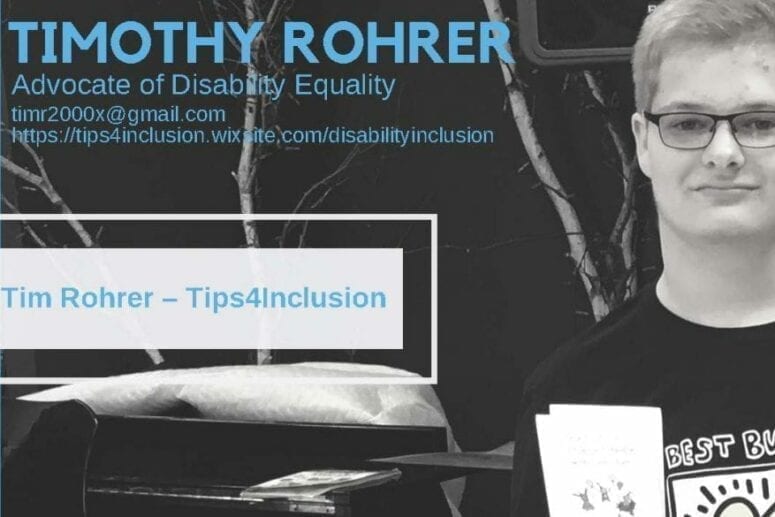
This article first was first published in The Source on July 5th 2019.
People with disabilities have been given a lot more opportunities than ever before. They have the same opportunities in learning new talents, jobs, and education. But there is one opportunity that is missing for them. That opportunity is true inclusion and friendship.
People with disabilities had been stereotyped as anti-social. This is false! Not all people with disabilities are like that. A lot of them want to have healthy able friends in their lives who can look up to them and help them whenever they are struggling. Whether someone has a disability or not, being friends with neurotypical people is a right, not a privilege. People with disabilities complain about being left out from social activities such as texting, calling, going to the movie theater, going out to eat, hanging out at the beach and at parties. When people with disabilities complain about being left out from these social activities, it means that they may feel upset about their lives.
We have the option to participate in activities such as going to restaurants, movie theaters, and going to the beach alone. But doing these activities without friends is not fun. Telling excuses to leave someone with a disability out from fun activities is bad for their health.
Not giving people with disabilities the opportunity to hang out and keep in touch with the general population is not only boring for them, but it can also damage their communication skills, behavior, education, and employment. If it would hurt your feelings for people to restrict you from hanging out or keeping in touch with you, why would you do it to people who are different from you?
Many people mistake people with disabilities to be annoying. The behavior of people with disabilities does not mean they are trying to alienate us. It means that they want someone to make them feel better. Friendship and compassion are the most pleasant ways to make them feel better.
Including people with disabilities is more than just being an acquaintance with them and avoiding saying hurtful things to them. True inclusion of people with disabilities means allowing them to talk to you. It also takes compassion, common sense, and an open mind to talk to them. If you witness something different in someone, it means that they have a disability. The disability does not make them a bad person. Don’t always see people with disabilities with your eyes, see them with your heart!
The second ingredient to true inclusion is allowing them to keep in touch with you, whether it is through calling, texting, instant messaging, Face Timing, Snapchatting, or even through a video game server. If they talk in a different way than neurotypical people like the rest of us while keeping in touch with you, take the time and talk to them in their style. Be courteous not to ignore or block them when they want to talk to you.
The third ingredient is allowing them to do fun things with you or even your group of friends. You may meet someone with a disability at school, church, volunteer program, or at work. Talking to them just for when you see them there may be satisfying to them, but it will only satisfy them for a short amount of time. Talking to them in that concept only will make them sad or angry during their free time such as the weekend or summer break.
People with disabilities like going to restaurants, beaches, movie theaters, birthday parties, the bowling alley, and the mall as much as the rest of us. How would you feel if you were forbidden from going to these places? People with disabilities either go to these places alone under supervision by a guardian or they don’t go to these places at all. Imagine going to these places alone under supervision by an authorized guardian without any friends. Do you think people with disabilities would rather be with friends or with authorized guardians better? If we can start hanging out with people with disabilities by giving them the time to chat and have fun together, it would save time and money for parents, guardians, caregivers, and counselors.
Treat people with disabilities the same way you wish to be treated. Let’s educate our youth of how to socialize with the disabled. Similar to Best Buddies, we need to have more extracurricular activities and events that allow people with disabilities to hang out with the rest of us.
Whoever you are, enjoy your passion in sports, cheerleading, band, choir, theater, honors classes, art, computer graphics, video games, comedy, agriculture, or anything you dream of. But just remember this, if someone is lower than you, allow them to talk to you about your passions. For example, your passion in the choir can soothe them or your passion in honors classes can help them memorize things better.
Money can’t buy happiness, but true inclusion can! Remember to let your friendship with the disabled person follow up with them not only when you see them in the hallways, but during the weekends, holidays, and summer breaks too!
You can find out more information about Tim’s great work on his website Tips4Inclusion and on his Facebook page.
- Autism Routine Disruption in Adults: Coping Tips - July 16, 2024
- Autism and Obsession: An Overview - July 16, 2024
- Autism and Taking Clothes Off: Management Tips - July 16, 2024
